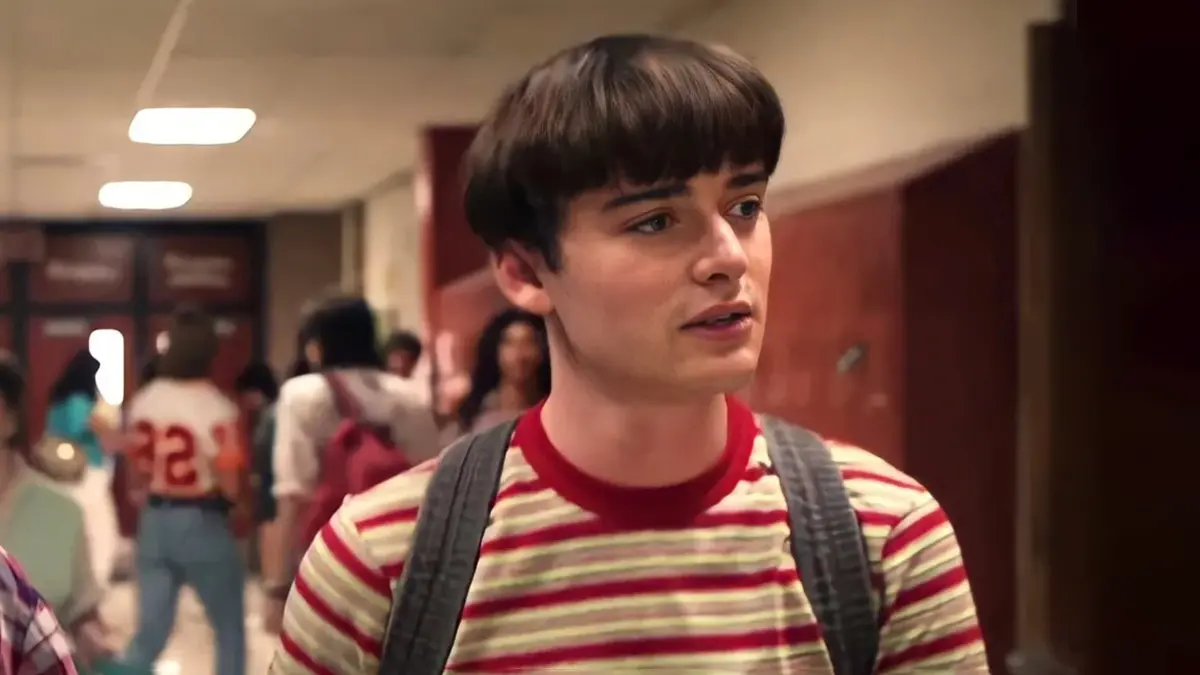Photo by Netflix
In January, Noah Schnapp posted a TikTok that read, “When I finally told my friends and family I was gay after being scared in the closet for 18 years, and all they said was ‘we know.’” The sound he lip syncs to says, “You know what it never was? That serious. It was never that serious. Quite frankly, it will never be that serious.” He captioned it, “I guess I’m more similar to will than I thought,” a reference to Will Byers, the character he plays in the show “Stranger Things,” who was confirmed by Schnapp to be gay in an interview with Variety last year.
The video has garnered over 13 million likes and five times as many views. The comments section is filled with support and light-hearted jokes about Zendaya — a reference to what many fans called a crush when Schnapp talked about meeting her on “The Tonight Show Starring Jimmy Fallon,” assuming Schnapp was straight.
His video made headlines with prominent news organizations like Variety, NBC News, CBS News, and Vanity Fair. However, it has quickly faded from public conversation, and Schnapp has moved on himself, posting about “Stranger Things” and videos of himself dancing on TikTok.
I’m beyond happy that Schnapp was accepted by friends and family, an experience that not all queer people get to have. Family support makes a world of difference in queer kids’ lives, and I’m well aware of the feeling of relief that comes with acceptance. It’s heartening to see a coming out story with what seems like a happy ending, especially when mere decades ago, celebrities coming out was still considered a scandal rather than a harmless piece of gossip. For example, when Ellen Degeneres came out at the same time as her character, Ellen Morgan, on the sitcom, “Ellen,” the production company faced bomb threats; Degeneres herself also faced threats and backlash.
Although Schnapp’s coming out was reassuring to see, it is also important to contextualize it with other recent events. While Schnapp’s coming out experience shows that there has been some progress in queer acceptance, there are still many problems that the queer community faces. There have been 340 anti-queer bills introduced this year, the majority targeting transgender individuals, and Kit Connor’s coming out as bisexual was not nearly as upbeat as Schnapp’s. While cisgender gay and lesbian members of the queer community might, in recent years, be coming out to more widespread visibility and acceptance, transgender individuals are still demonized in mainstream society, and bisexual people are still criticized even within the queer community.
Are the positive receptions of some queer celebrities really acceptance of the whole community or just the parts that are palatable to cisheteronormative society? Cisgender gay and lesbian members of the queer community may be easier for non-queer people to understand — they don’t challenge the patriarchy and traditional roles of man/woman in the same way transgender and nonbinary people do. Additionally, it may be easier for cisgender gay and lesbian couples to be put into boxes that resemble heteronormativity — think of the, “So who wears the pants?” question that queer couples are usually asked at least once in their lives.
As sentiments towards queer people change or stagnate, it’s more important than ever for the queer community to stick together and defend those of us who are the most vulnerable. Cisheteronormative society is not designed to accept and accommodate queer people as they truly are. From the Stonewall Riots to now, where bills like the one recently passed in Tennessee that bans public drag performances blatantly vilify queer culture, the queer community has been attacked throughout history. As a community, queer individuals must ensure everyone is recognized, and we must stick together as people try to pick and choose which parts of the community they think are worthy of accepting, while discarding the messy, chaotic, wonderful parts that remain.
Credits:
Author: Emma Blakely (They/She/He)
Copy Editors: Michel (He/They), Bella (She/They)

